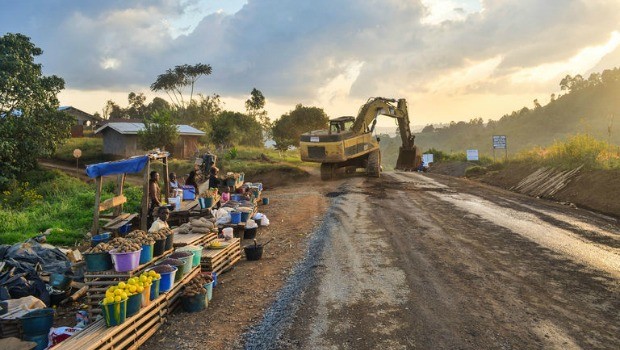Thirty-three planned and existing road and rail projects across Africa will help economic development but they’ll hurt African wildlife irreparably, according to a report in TheGuardian.
The economic development that comes with new African transportation corridors could destroy Africa’s savannahs and equatorial forests as people move into protected areas, according to a new study published in the journal Current Biology.
Proposals for African transport corridors range from building or upgrading major roads and railways across the Congo basin and east-west links in Southern Africa. One route is planned to link Port Harcourt in the Niger delta to Dakar, Senegal. Another would link Chad with Kenya.
Africa is experiencing a frenzy of mining activity with most of the investment coming from overseas, said Prof. William Laurance, an ecologist at James Cook University, Cairns, Australia, and the study’s lead author, TheConversation reported.
Even if a transport corridor is likely to yield only modest benefits for food production it may be very difficult for governments to say no to big mining investors and the billions of dollars of foreign investments pouring into Africa each year for mining, Laurance said.
New African road and rail corridors will open up sparsely populated areas to major development pressures and not all these regions will be suitable for agricultural production, the study said.
When completed, the 33 planned or existing corridors will cover more than 53,000 kilometers (33,000 miles). Collectively, the corridors will bisect over 400 protected areas.
Researchers mapped each corridor and estimated human occupancy (using the distribution of persistent night lights) and environmental values (endangered and endemic animals, plant diversity, critical habitats, carbon storage, and climate-regulation services) inside a 50-kilometer-wide band overlaid onto each corridor, according to CurrentBiology.
Six of the 33 corridors are have been planned well with large benefits and limited environmental costs, the study said, according to TheGuardian. Another six risk damaging critical environments, especially rain forests in the Congo basin and West Africa and biologically rich equatorial savannah regions.
About 20 corridors need further evaluation. “If they do progress, it should only happen under the most stringent conditions,” Laurance said.
Researchers also assessed the potential for each corridor to increase agricultural production and concluded that many of the development corridors will result in irreversible environmental changes and some should be cancelled altogether.
Africa will likely become a global epicenter of environmental conflict, Laurance said.
The African transport projects have a variety of funding sources including African Development Bank, African and foreign governments, international donors and lenders, and commercial agricultural and mining interests. They’re intended to promote large-scale development and their scope is breathtaking.
“Africa is changing faster than any continent has ever changed in human history,” the study said. “A key priority in the coming decades will be increasing agricultural production and efficiency to improve food security and alleviate poverty for Africa’s rapidly growing population while harnessing the unprecedented scale of foreign investments focusing on land and natural-resource exploitation.
Source: Dana Sanchez, AFK insider




